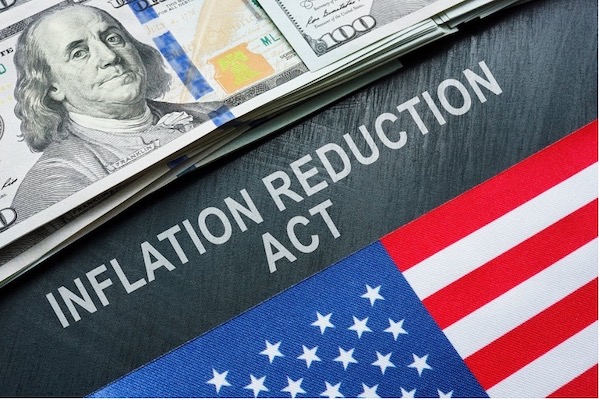US announces first ten drugs up for Medicare price negotiation
August 31, 2023
Source: drugdu
 322
322

Medicare will soon be able to negotiate the prescription drug prices for the first time, under US President Joe Biden’s Inflation Reduction Act (IRA), which was enacted last year.
Earlier today, the US Department of Health and Human Services (HHS) released a list of ten drugs that will be up for price negotiations. Aimed at driving down healthcare costs and increasing patient power, the IRA allows the Centers for Medicare and Medicaid Services (CMS), the US Government’s national insurance programme, to provide drugs at reduced prices.
The price negotiation process will consider elements like the drug’s clinical benefit, the unmet clinical need, and the costs associated with the drug’s production. The negotiations with manufacturing companies will occur in 2023 and 2024, with any price changes rolling in by 2026.
Blockbuster drugs are aplenty on the list. Bristol-Myers Squibb (BMS) and Pfizer’s co-developed drug Eliquis (apixaban) and Amgen’s Enbrel (etanercept) are two of the drugs now available for price negotiation. The first ten drugs to be covered cost a total of $3.4bn in out-of-pocket costs for Medicare enrollees in 2022.
Reacting to the news, William Blair analyst Matt Phipps commented: “For Eliquis, the inclusion does not come as a surprise […] however, it remains to be seen what level of discount will be negotiated with CMS over the coming year, and therefore we expect our estimates [of sales] will likely change.”
“There had been some debates on whether [Enbrel] would make the sales cut-off on the initial list (versus 2027) given only a quarter of sales are likely from Medicare. Loss of exclusivity for Enbrel is expected in 2029, however, the 60% minimum discount (given how long Enbrel has been on the market) will meaningfully reduce revenues. How much these discounts impact commercial pricing remains to be seen.”
Other drugs include MSD’s Januvia (sitagliptin), Johnson & Johnson’s Xarelto (rivaroxaban), Novartis’s Entresto (sacubitril/valsartan), Abbvie’s Imbruvica (ibrutinib), Boehringer Ingelheim and Eli Lilly‘s Jardiance (empagliflozin), AstraZenca’s Farxiga (dapagliflozin), Janssen’s Stelera (ustekinumab), and Novo Nordisk’s insulin Novolog, which is also available other formulations.
HHS secretary Xavier Becerra said: “For far too long, pharmaceutical companies have made record profits while American families were saddled with record prices and unable to afford life-saving prescription drugs.”
Rocky road ahead
Since the Biden administration announced plans for drug price negotiations via the Act, pharmaceutical companies have been vociferous in their opposition to the change in drug pricing status-quo. This has involved several lawsuits filed against CMS by key pharma players, advocacy organisations and the US Chamber of Commerce.
MSD invoked the Fifth Amendment to the US Constitution – which states the government must pay just compensation to the owner of private property taken for public use – in its lawsuit, whereas BMS said the new pricing programme violates the Fifth and First Amendments, commenting that the IRA requires pharmaceutical companies “to sell their most innovative and effective medicines at government-dictated prices”.
In a statement welcoming the drug selection, CMS said it will be conducting patient-focusing listening sessions on the listed drugs in Q3 2023.
CMS administrator Chiquita Brooks-LaSure said: “Along with the announcement of the selected drugs, we announced CMS’ plans to host a patient-focused listening session for each selected drug to hear directly from patients and others.”
https://www.pharmaceutical-technology.com/news/us-announces-first-ten-drugs-up-for-medicare-price-negotiation/
Read more on
- The first subject has been dosed in the Phase I clinical trial of Yuandong Bio’s EP-0210 monoclonal antibody injection. February 10, 2026
- Clinical trial of recombinant herpes zoster ZFA01 adjuvant vaccine (CHO cells) approved February 10, 2026
- Heyu Pharmaceuticals’ FGFR4 inhibitor ipagoglottinib has received Fast Track designation from the FDA for the treatment of advanced HCC patients with FGF19 overexpression who have been treated with ICIs and mTKIs. February 10, 2026
- Sanofi’s “Rilzabrutinib” has been recognized as a Breakthrough Therapy in the United States and an Orphan Drug in Japan, and has applied for marketing approval in China. February 10, 2026
- Domestically developed blockbuster ADC approved for new indication February 10, 2026
your submission has already been received.
OK
Subscribe
Please enter a valid Email address!
Submit
The most relevant industry news & insight will be sent to you every two weeks.



